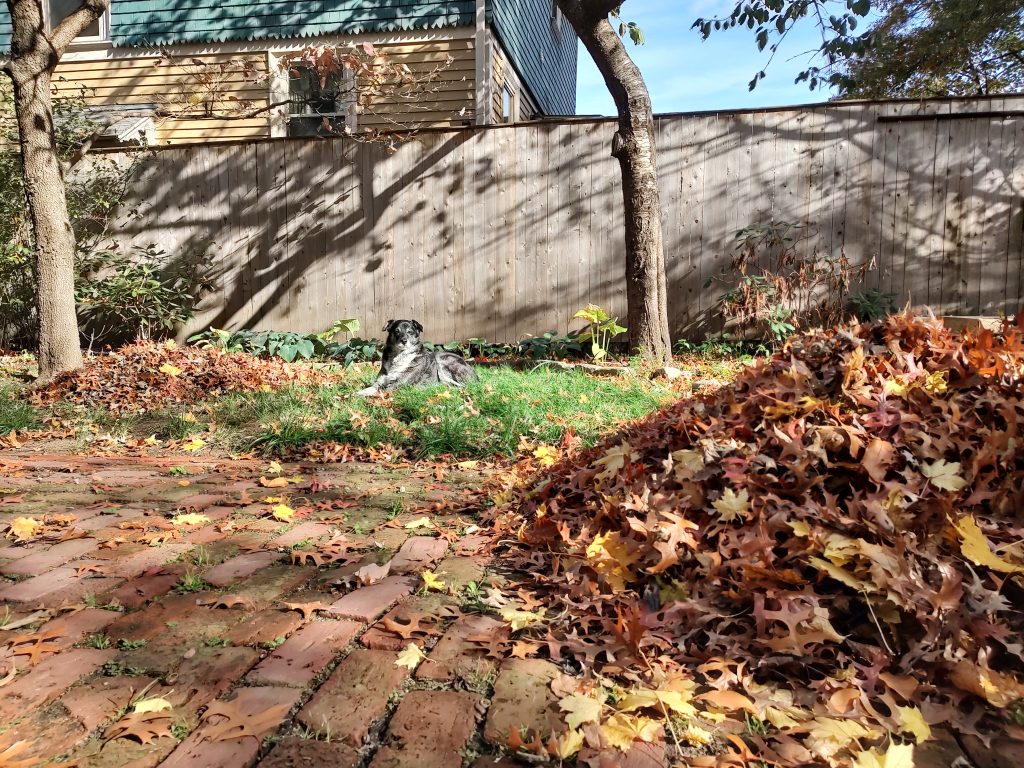
Henry in the leaves. Photo: Meg Coss
Fall is a time for hoodies, pumpkin everything, and fewer hours of daylight. The air gets cooler and a brisk scent fills the air, signifying the changing of the season. The leaves turn beautiful colors before falling off the trees, covering lawns everywhere. This, along with a final cut of the grass and the clearing out of summer’s plant debris, has landscapers gearing up for fall cleanups.
While fall cleanups make yards look tidy, they can be taxing on the environment. Burning leaves causes air pollution. Bringing waste to the landfill just adds to what is now one of the highest points in Rhode Island, and is now expanding outwards. The decomposing yard waste in the landfill releases methane, as there is no oxygen for it to breathe. Cleaning the yard waste also takes away the habitat of some local wildlife, leaving them short on food and shelter during the winter.
Disposing of yard debris ultimately wastes many important uses which the natural organic matter can provide to the yard in the future. Here are some yard cleaning tips for those planning to take the DIY approach that is better for the environment.
DITCH THE LEAF BLOWER
Pollution from 2-cycle fuel and extreme wind causes habitat destruction.
KEEP UP WITH YOUR LEAVES AS THEY DROP
The longer leaves stay on the ground, the more insects will use them as winter cover.
COMPOST YOUR LEAVES AND GRASS CLIPPINGS ALONG WITH GARDEN CUTBACKS
Getting your compost going may be a challenge, but what it produces can be used in gardens for many seasons to come.
– Compost at home if possible. See what compost services your city or town has to offer.
– Bring your leaf and yard debris directly to RI Resource Recovery. The acceptance criteria and fee schedule can be found through the QR code:
LEAVE PERENNIAL GARDENS UNCUT
Birds and wildlife will benefit from the seeds.
LEAVE FALLEN LEAVES IN GARDEN BEDS
Not raking provides garden beds with a natural blanket of protection from winter elements.
CREATE BRUSH PILES
This provides shelter for local wildlife in the winter months.
DO NOT PLACE LEAF AND YARD DEBRIS IN THE TRASH
Find opportunities to have it composted for reuse as opposed to unnecessarily consuming RI’s limited landfill disposal capacity.
Tips courtesy of Mike Yarworth, Fine Gardener at University of Rhode Island; Rhode Island Resource Recovery; and, The National Wildlife Federation. Call RI Resource Recovery at (401) 942-1430 with specific questions.



